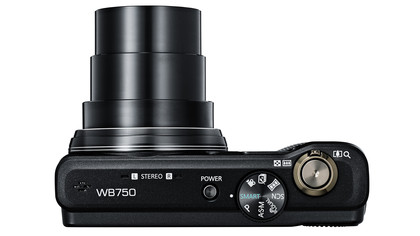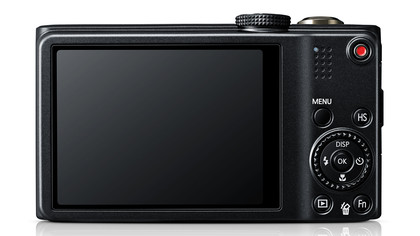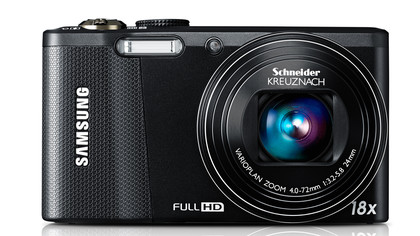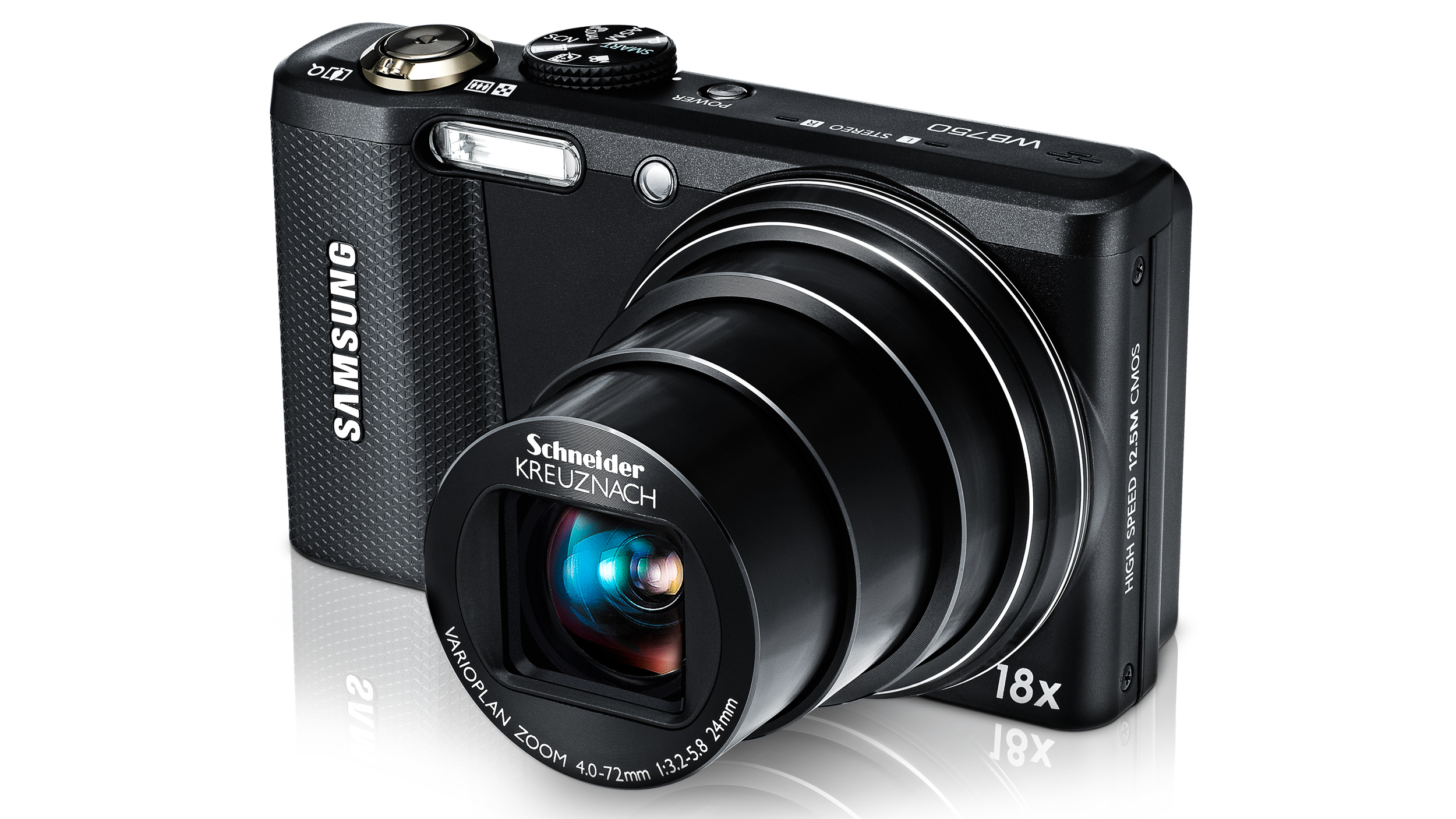Why you can trust TechRadar
The Samsung WB750 manages to pack its whopping 24-432mm lens into a body measuring a fairly slim 105.3 x 59.4 x 24.9mm (4.15 x 2.34 x 0.98 inches). Despite the camera weighing under 200g (0.42lbs), it feels solid and robust.
To get sharp images using a big lens requires firm support in addition to effective image stabilisation. The Samsung WB750's memory card and battery chamber acts as a raised grip on the front of the body, with a textured surface providing additional purchase.
The small flash cuts into the top of the grip slightly, and it's easy to obscure with a stray finger if you're not careful. Around the back, a smaller dimpled area acts as a thumb rest.

There's a substantial range of on-body controls on the back of the camera too, arranged in the typical layout down the right-hand side of the screen. A movie direct record button is conveniently placed on the top-right corner, next to the thumb rest, while a control pad and scroll wheel surround give quick access to flash, focus, drive and display settings.
Despite the Samsung WB750 offering a range of functions designed to appeal to more advanced photographers, there's no button for exposure compensation. Instead, that feature is tucked away in the menu system.
However, in a smart move, a Function (Fn) button on the bottom-right of the camera gives quick access to a menu of key shooting parameters, including exposure compensation. The overlay that appears when the Fn button is tapped opens with the last adjusted control parameter highlighted, giving you rapid access to a regularly used function without having to delve into the main menu.

The top of the Samsung WB750 is dominated by the mode dial. This features eight different options, each of which is displayed and explained on the rear screen as you twist the dial. The latter is a welcome feature, because the settings are likely to be quite baffling for a beginner.
Sign up for breaking news, reviews, opinion, top tech deals, and more.
Aperture Priority, Shutter Priority and Manual are grouped together under a single 'ASM' option - you use the LCD monitor to decide which of these modes you want to use.
Program mode gets its own distinct P slot, as do the green Smart Auto and Scene mode (SCN) settings. Select the latter and you again use the rear screen to scroll through 12 big, attractive icons that represent each of the scene mode options. This process can slow things down a little though, particularly as the various scene modes form rather a ragtag bunch.
As you'd expect, there are typical options for landscape, night photography, beach and snow and backlit scenes. New HDR and 3D modes join the lineup too.

But then there's the niche Text mode for photographing documents, a Sunset mode and a separate Dawn mode, plus Zooming Shot (which applies a rather abrupt zoom burst effect around a sharp circle in the centre of the frame).
Magic Frame can be used to add some (pretty tacky) surrounds to an image, while Beauty Shot automatically touches up spots and blemishes when shooting a portrait.
Rather than featuring as part of the scene mode lineup, the Samsung WB750's Live Panorama function gets a dedicated spot on the mode dial. Similar to Sony's Sweep Panorama, this takes a Live, Action or 3D panorama as the camera is moved across the scene with the shutter release held down. For the most part it does a good job, although we experienced some banding in low light scenes.
The final slots on the mode dial are taken up by the Dual IS option, a dedicated movie mode (perhaps overkill, given the one-touch recording button) and Creative Movie Maker. This latter mode enables you to select a combination of stills and video, then apply a theme to them in order to create a slideshow, complete with background music. The end results aren't exactly stylish.
